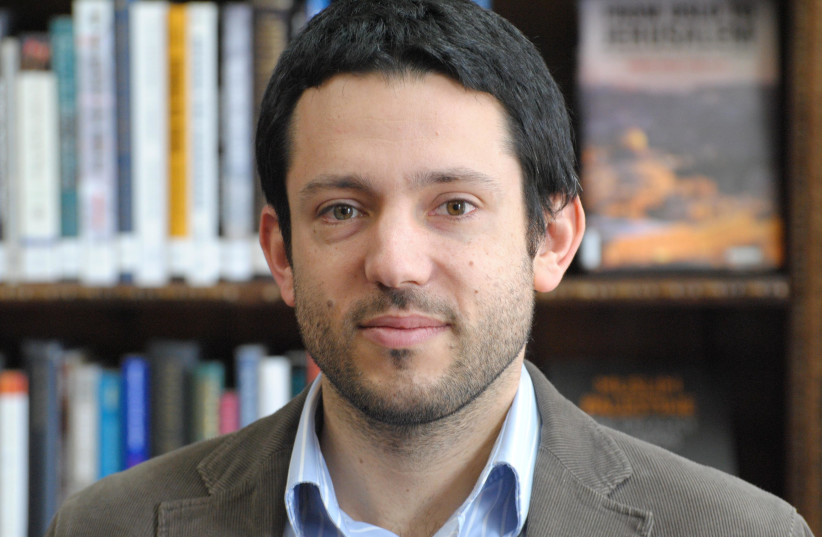At least two doses of Pfizer’s COVID-19 vaccine dramatically reduces most of the long-term symptoms that people reported months after contracting coronavirus disease, according to a new study at Bar-Ilan University.
“It is becoming increasingly clear that vaccines protect not just against disease but against long-term, sometimes life-changing effects of COVID-19,” said Prof. Michael Edelstein of Bar-Ilan’s Azrieli Faculty of Medicine in Safed.
In this study, eight of the 10 most-commonly reported symptoms were reported between 50% and 80% less often among those who received at least two doses of COVID-19 vaccine compared with those who received no shots.
The study was recently published in the prestigious nature journal npj Vaccines under the title “Association between BNT162b2 vaccination and reported incidence of post-COVID-19 symptoms: cross-sectional study 2020-21, Israel.”
It was led by Edelstein in cooperation with infectious disease and information technology teams at three of the faculty’s affiliate hospitals in northern Israel: the Baruch Padeh Medical Center in Tiberias, Ziv Medical Center in Safed and Galilee Medical Center in Nahariya. Paul Otiku, a doctoral student at the Azrieli Faculty, carried out most of the statistical analysis.

How was the Israeli COVID-19 study conducted?
Nearly 3,500 adults across Israel participated in the study, which was carried out between July and November 2021. They each completed a survey in one of four commonly-spoken local languages – Hebrew, Arabic, English and Russian – with a variety of questions about previous COVID-19 infection, vaccination status and any symptoms they were experiencing.
More than half of the participants (2,447) reported never having had a COVID-19 infection, while 951 said they had been infected. Of those who had, 637 (67%) received at least two vaccine doses. Of the 2,447 reporting no previous infection, there were 21 (0.9%) who had received one dose, 1,195 (48.8%) received two doses, 744 (30.4%) received three doses and the rest were unvaccinated (19.9%).
"It is becoming increasingly clear that vaccines protect not just against disease but, as the results of this study suggest, against long-term, sometimes life-changing, effects of COVID-19.”
Prof. Michael Edelstein
The researchers compared vaccinated individuals with the unvaccinated in terms of acute, self-reported symptoms after the infection. After adjusting for factors such as age and time elapsed from infection to responding to the survey, they found that vaccination with two or more doses of the Pfizer vaccine was linked with a reduced risk of reporting the most common post-COVID symptoms.
Will the study help with understanding long COVID?
Among those in the current study group, the most common symptoms reported – fatigue, headache, weakness of limbs and persistent muscle pain – were reduced by 62%, 50%, 62% and 66%, respectively. Shortness of breath was reduced by 80% and persistent muscle pain by 70%.
The study contributes to scarce information to date about the impact of vaccination on long COVID, said Edelstein.
The study contributes to scarce information to date about the impact of vaccination on long COVID, said Edelstein.
“We don’t fully understand what happens in the months and years following COVID-19 in terms of physical and mental health and well-being,” he explained. “Because long COVID seems to affect so many people, it was important to us to check whether vaccines could help alleviate the symptoms. It is becoming increasingly clear that vaccines protect not just against disease but, as the results of this study suggest, against long-term, sometimes life-changing effects of COVID-19.”
To what extent vaccines protect against “long COVID” – lingering and debilitating symptoms that can continue for months or longer – remains less clear.
“Long coronavirus disease 2019, also known as post-COVID-19 syndrome, is an emerging and complex health problem that remains poorly characterized,” the researchers wrote. “In October 2021, the World Health Organization defined long COVID as ‘a condition which occurs in individuals with a history of probable or confirmed COVID-19 infection, usually three months from the onset of COVID-19 with symptoms that last for at least two months and cannot be explained by an alternative diagnosis.’”
Common symptoms include fatigue, shortness of breath and cognitive dysfunction. Other symptoms involve the musculoskeletal, cardiac and central nervous systems, which have a significant impact on everyday functioning.
The study is the first in an ongoing project launched by Edelstein to track a large cohort of individuals from all sectors of Israel’s diverse society to understand the impact of the vaccines on long-term quality of life, different COVID variants and long-COVID symptoms.
